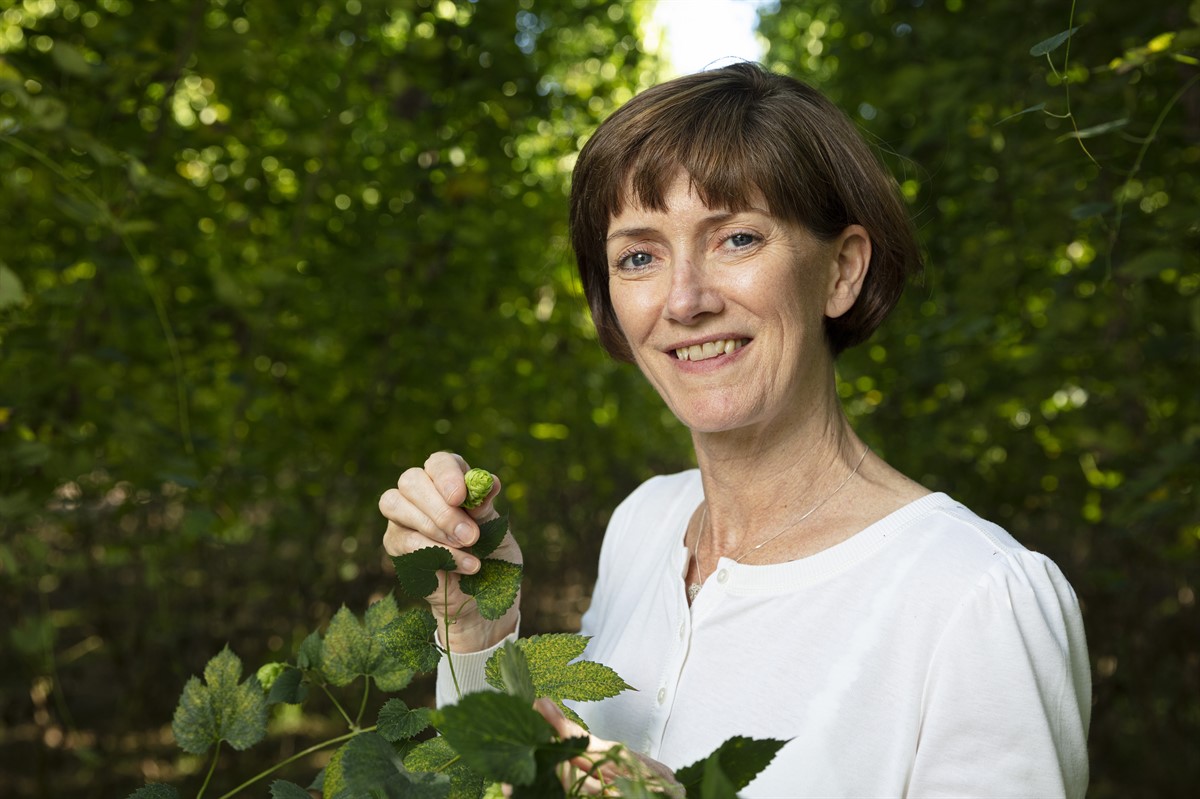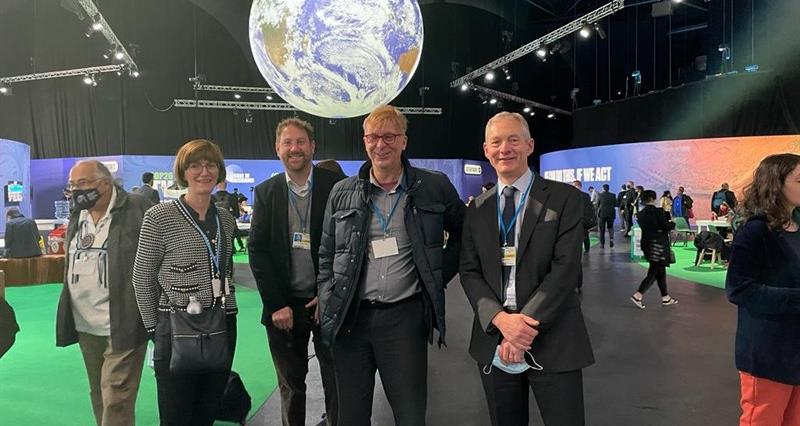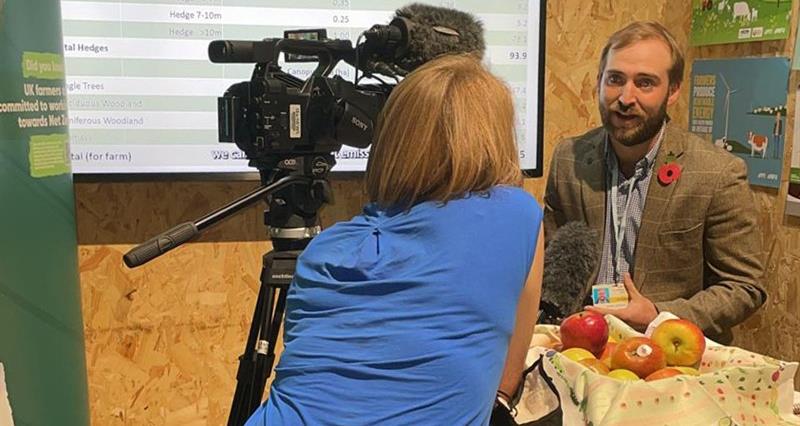The Conference of Parties (COP) is the United Nations global climate summit which has been meeting for nearly three decades. The 26th COP took place in Glasgow under the UK presidency and seeks to reduce global warming.
In 2015 in Paris, world leaders agreed to limit global warming to 1.5 degrees but going into COP26, the world was heading for a global temperature increase of 2.7 degrees. As I write this the COP26 is just over halfway through.
Looking at challenges and opportunities
Why did I go? I sit on the NFU’s Net Zero steering committee and have had to think quite deeply about climate change issues and the challenges and opportunities that these present to agriculture and horticulture. I was invited to go in week 2 of the conference as a steering group member.
COP26 was arranged in two zones – the Blue Zone (for delegates only) and the Green Zone (open to the public and a showcase for the main sponsors).
There were hundreds of talks, sessions, meetings, presentations and negotiations every day.
Navigating where to go, what to see and what to listen to was complicated, but we were helped by the NFU’s Climate Change team.
Frustratingly, many of the best talks were oversubscribed, and we could not get in despite queuing. I even persuaded the farmers I was with that we should go to a talk about fast fashion and look at the problems in another industry sector to see what we could learn – they were relieved that one was full! One session was focused on the innovation required in farming, but there were no farmers on the panel…
So, what did I learn? COP would seem to be about giving the almost 200 countries attending a chance to talk to each other, make connections, create partnerships and coalitions, create networks and agree on shared ambitions. Two weeks is a short time for a negotiation, but it’s a long time for a conference! No business sector would run a conference for two weeks; they could not afford the time.
Determined commitments are needed
If I was in charge I think I’d give the negotiators a month to really make some determined commitments.
If 1.5 degrees warmer is the maximum the world can cope with, let’s make a pledge to 1.2 degrees and then we might meet 1.5 degrees.
What to do with all the delegates? Well, a three-day conference would focus the mind!
These are the people who can lead change in their countries or sectors.
I would give them a simple brief: 'How?'. If you want to come to COP, work out how we will meet these targets in your country or in your sector, work out the roadmaps, talk to your global counterparts and the NGO’s and work out how to lead your sector forward, leave COP to take responsibility and inspire others to follow your lead.
Passion and energy but too much talking
What I found (in just two days of the full two weeks, so perhaps not enough time to absorb it all) was too much talking but equally a lot of passion and energy from young people that needs to be harnessed, directed and constructed.
For farming and growing – we need a much, much bigger coalition, a larger 'Farmers constituency' and a much stronger voice.
Before it’s too late we need to explain what constitutes a healthy, balanced and sustainable diet. We need to provide the evidence base for more locally grown fresh fruit and veg; and for our British, grass-based, mostly free-range, grazed livestock and dairy landscape that sequesters carbon. We need to list our challenges and use a 'moonshot' approach to tackle them.
Thanks to our amazing mild maritime climate we are one of the best places to grow food in the world and will continue to be – so we should grow more food for our citizens and for the rest of the world and work out ways to do it that are kinder and cooler to our environment.
Changing our ways
What will I do differently as a result? A lot, we must all act to change our ways, to change our reliance on fossil fuels to travel less, to behave differently. Whether it is on the farm or in our homes, we all need to act urgently to stop warming up our world.
Was it blah, blah, blah? Not entirely, but there was a lot of hot air, and it felt like an echo chamber.
We desperately need more action.



